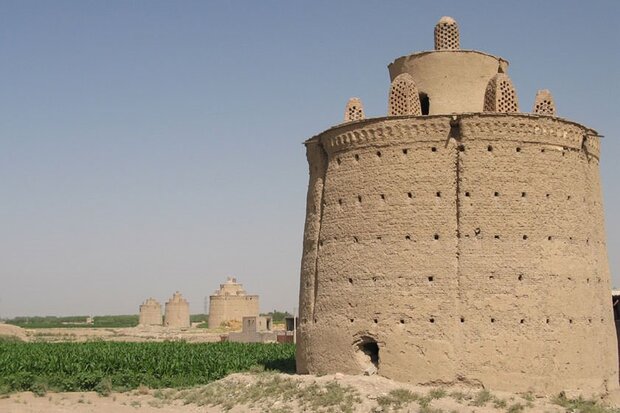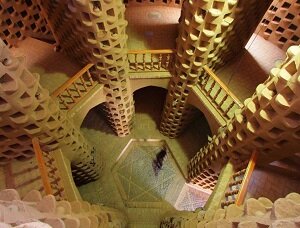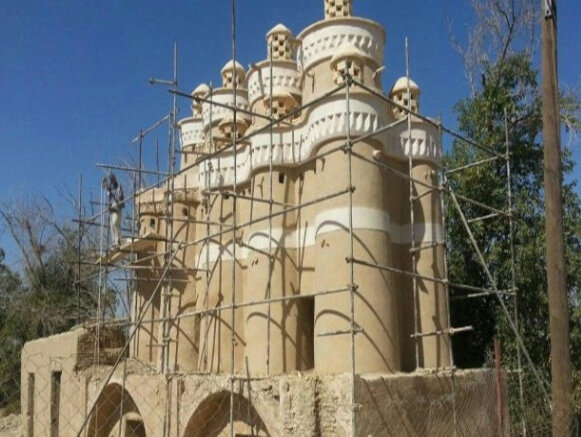TEHRAN—Teams of cultural heritage restores are busy restoring arrays of abandoned pigeon towers, now deemed as emerging tourist destinations in Falavarjan county of Isfahan province.
On Monday, several local authorities paid a visit to the centuries-old mud-brick towers to personally inspect the restoration process, CHTN reported.
The physical condition of pigeon towers, historical values of the site, previous restoration procedures, their ownership status, tourism capacities, and potential investment strategies were among topics that officials of Falavarjan discussed during the visit, the report said.
Moreover, the authorities urged the need to start a survey to determine legal boundaries for 43 pigeon towers, which are situated in five different collections, in a bid to enhance their protection.
The restoration work is estimated to come to an end by the yearned (March 20, 2023), the report said. Named “pigeon towers”, where the droppings could be collected and used as fertilizer, may hold as many as 14,000 pigeons.
It is not clear when such pigeon houses were built first, but according to the comments by ancient travelers, at least they have existed since 800 years ago. For the first time, “Ibn Battuta,” the famous Moroccan traveler mentioned pigeon houses.
Moreover, according to historians Tamerlane after knowing their functions, ordered the construction of such places in his capital, Bukhara. Also, the famous French traveler, Sharden, who visited Iran during the 16th century, again mentioned different pigeon houses in Iran, especially in Isfahan and Yazd. During the invasion of Afghans, most of them were ruined, probably as a result of being used as shelters.
Isfahan, in central Iran, is famed for having a rich heritage of pigeon towers; most of them were built in the 17th century. The architecture of these towers is based on the vernacular architecture of Iran.
It is an efficient use of space inside the towers; the walls were strengthened with interior arches. The ceiling is of the barrel-vaulted kind.
Isfahan is dotted with bizarre but very picturesque pigeon towers. In contrast to a European dovecot, which often housed pigeons to be used as meat, in Iran, the pigeons were never eaten. Here pigeon towers were used as guano factories to produce fertilizers for the melons that have always been the pride of the region. The guano was also used in the manufacture of gunpowder.
Pigeon towers are of considerable size, often 10.5-12 m high, of sturdy construction and fine proportions. The pigeon houses are usually built of mud-brick. Unbelievably varied, often decorated by ornate cupolas and muqarnas friezes, they are so charming that it is well worth going even great distances to see them.
Although there are never two identical pigeon towers, all conform to a single plan. Each tower consists of an outer drum, buttressed internally to prevent collapse and to support the inner drum that rises perhaps a third as high as the main structure.
Pigeons can get to their nets through some passages which are such narrow that is impossible to other birds such as eagles or falcons to enter. At the bottom, there are some smooth parts of stucco works. These parts can avoid snakes to ascend. In some cases, they put a bowl of milk at the center with limes around it. As snakes like milk, they try to get it but will be stuck in the lime.
Nowadays, due to the wide usage of chemical fertilizers, such pigeon towers just convey memories of the past as significant but strange buildings.
AM
Related posts:
Views: 0
 RSS Feed
RSS Feed

















 September 22nd, 2022
September 22nd, 2022  Awake Goy
Awake Goy 



 Posted in
Posted in  Tags:
Tags: 
















